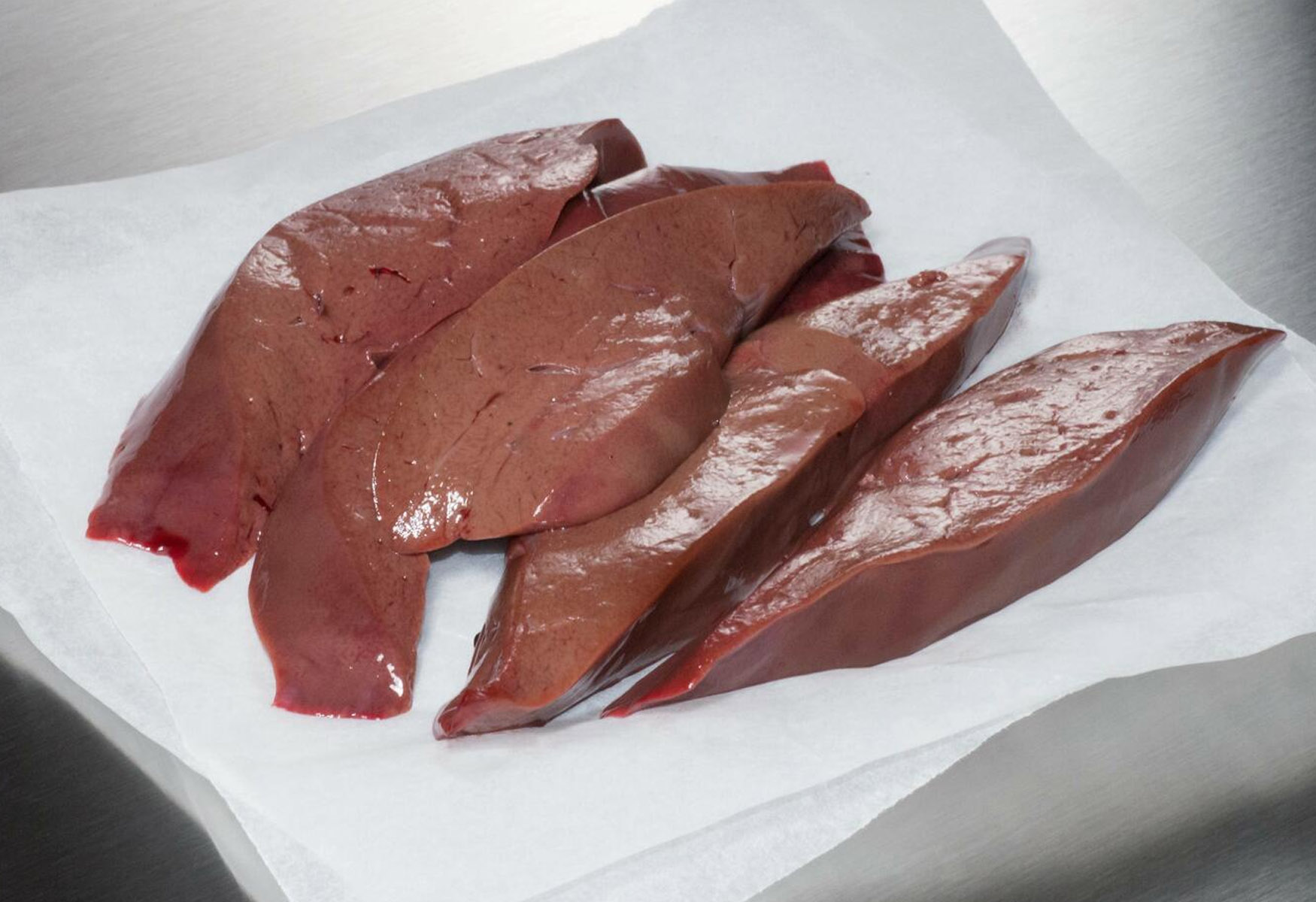
Lamb liver, also known as lamb’s liver, is a nutrient-dense organ meat that is widely consumed around the world. It is not only delicious but also offers a range of impressive health benefits. Packed with essential vitamins and minerals, lamb liver is a true superfood that can support overall health and well-being.
In this article, we will explore 20 fascinating nutrition facts about lamb liver. From its high protein content to its abundance of vitamins and minerals, you will discover why this organ meat is considered a nutritional powerhouse. Whether you are a fan of lamb liver or curious about incorporating it into your diet, this information will show you just how beneficial it can be for your overall nutrition.
Key Takeaways:
- Lamb liver is a superfood packed with protein, vitamins, and minerals that support brain function, energy levels, and immune health. It’s a nutrient powerhouse for overall well-being!
- With high protein, iron, and vitamins, lamb liver promotes healthy skin, boosts metabolism, and supports heart health. It’s a delicious way to nourish your body from the inside out!
High in Protein
Lamb liver is a great source of protein, with every 100 grams containing about 25 grams of protein. Protein is essential for building and repairing tissues in the body.
Rich in Vitamins A and B12
Lamb liver is a powerhouse of vitamins, particularly vitamin A and BVitamin A is crucial for maintaining healthy vision, while B12 is important for energy production and nerve function.
Packed with Iron
If you’re looking to boost your iron intake, lamb liver is an excellent choice. It contains high levels of iron, which is essential for red blood cell production and oxygen transport in the body.
Source of Vitamin C
Surprisingly, lamb liver also provides a good amount of vitamin C. Vitamin C is known for its immune-boosting properties and its role in collagen production.
Low in Fat
Despite its rich nutritional profile, lamb liver is relatively low in fat. This makes it a great option for those looking to enjoy the benefits of organ meats while watching their fat intake.
High in Copper
Copper is an important mineral that helps with the production of red blood cells and the maintenance of a healthy immune system. Lamb liver is a rich source of copper.
Contains Essential Minerals
Lamb liver is a good source of essential minerals such as zinc, selenium, and phosphorus. These minerals play various roles in maintaining overall health and well-being.
Supports Brain Function
The rich content of vitamins and minerals in lamb liver, particularly vitamin B12, is essential for optimal brain function and cognitive health.
Boosts Energy
Thanks to its high protein and B vitamin content, lamb liver can help boost energy levels and combat fatigue.
Supports Healthy Skin
The combination of vitamin A and vitamin C in lamb liver promotes healthy skin by aiding collagen production and protecting against free radicals.
Improves Immune Function
The vitamins and minerals found in lamb liver, including vitamin C and copper, contribute to a stronger immune system, helping the body fight off infections and illnesses.
Enhances Digestive Health
The high protein content in lamb liver supports proper digestion and helps maintain a healthy gut.
Rich in Antioxidants
Lamb liver contains natural antioxidants that can protect the body against oxidative stress and reduce the risk of chronic diseases.
Supports Healthy Blood
The iron and vitamin B12 content in lamb liver play a crucial role in the production of healthy red blood cells, preventing anemia and maintaining good blood health.
Boosts Metabolism
The B vitamins in lamb liver, particularly B12, are essential for a healthy metabolism and efficient energy production.
Regulates Hormonal Balance
The vitamins and minerals in lamb liver contribute to maintaining a healthy hormonal balance in the body.
Assists in Detoxification
Liver is known for its detoxifying properties, and lamb liver is no exception. It helps eliminate toxins from the body and supports liver function.
Supports Muscle Growth and Repair
The high protein content and essential amino acids in lamb liver make it beneficial for muscle growth, repair, and recovery.
Boosts Brain Health
Lamb liver is rich in choline, a nutrient that plays a vital role in brain development and function.
Promotes Heart Health
The combination of vitamins, minerals, and antioxidants in lamb liver supports cardiovascular health and helps reduce the risk of heart disease.
Conclusion
In conclusion, lamb liver is a highly nutritious organ meat that offers a wide range of health benefits. Packed with essential vitamins, minerals, and high-quality protein, it can be a valuable addition to a healthy diet. From supporting brain function to enhancing immune health and promoting healthy hair and skin, lamb liver provides an impressive array of nutrients that can contribute to overall well-being. However, it is important to consume it in moderation, as it is also high in cholesterol and should be enjoyed as part of a balanced diet. So, next time you’re looking to add variety to your meals, consider incorporating lamb liver for a nutritious boost.
FAQs
Q: Is lamb liver high in cholesterol?
A: Yes, lamb liver is high in cholesterol. Therefore, it should be consumed in moderation, especially for individuals with high cholesterol levels or heart conditions.
Q: How can I include lamb liver in my diet?
A: Lamb liver can be enjoyed in a variety of dishes such as stir-fries, stews, and pâtés. It can also be sliced and pan-fried with onions and spices for a flavorful and nutrient-rich meal option.
Q: Can lamb liver help improve iron levels in the body?
A: Yes, lamb liver is an excellent source of iron, making it beneficial for individuals with iron deficiency or anemia. Including lamb liver in your diet can help boost iron levels and prevent deficiencies.
Q: Are there any potential risks associated with consuming lamb liver?
A: While lamb liver is highly nutritious, it is important to note that organ meats can accumulate toxins. Therefore, it is recommended to consume organ meats from trusted sources and to cook them thoroughly to reduce the risk of foodborne illnesses.
Q: Can I freeze lamb liver?
A: Yes, lamb liver can be frozen for future use. It is recommended to separate it into individual portions before freezing for convenience.
Was this page helpful?
Our commitment to delivering trustworthy and engaging content is at the heart of what we do. Each fact on our site is contributed by real users like you, bringing a wealth of diverse insights and information. To ensure the highest standards of accuracy and reliability, our dedicated editors meticulously review each submission. This process guarantees that the facts we share are not only fascinating but also credible. Trust in our commitment to quality and authenticity as you explore and learn with us.


